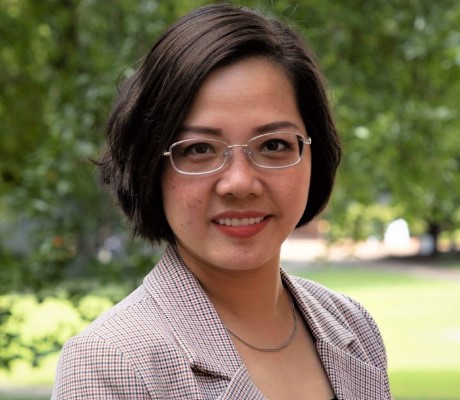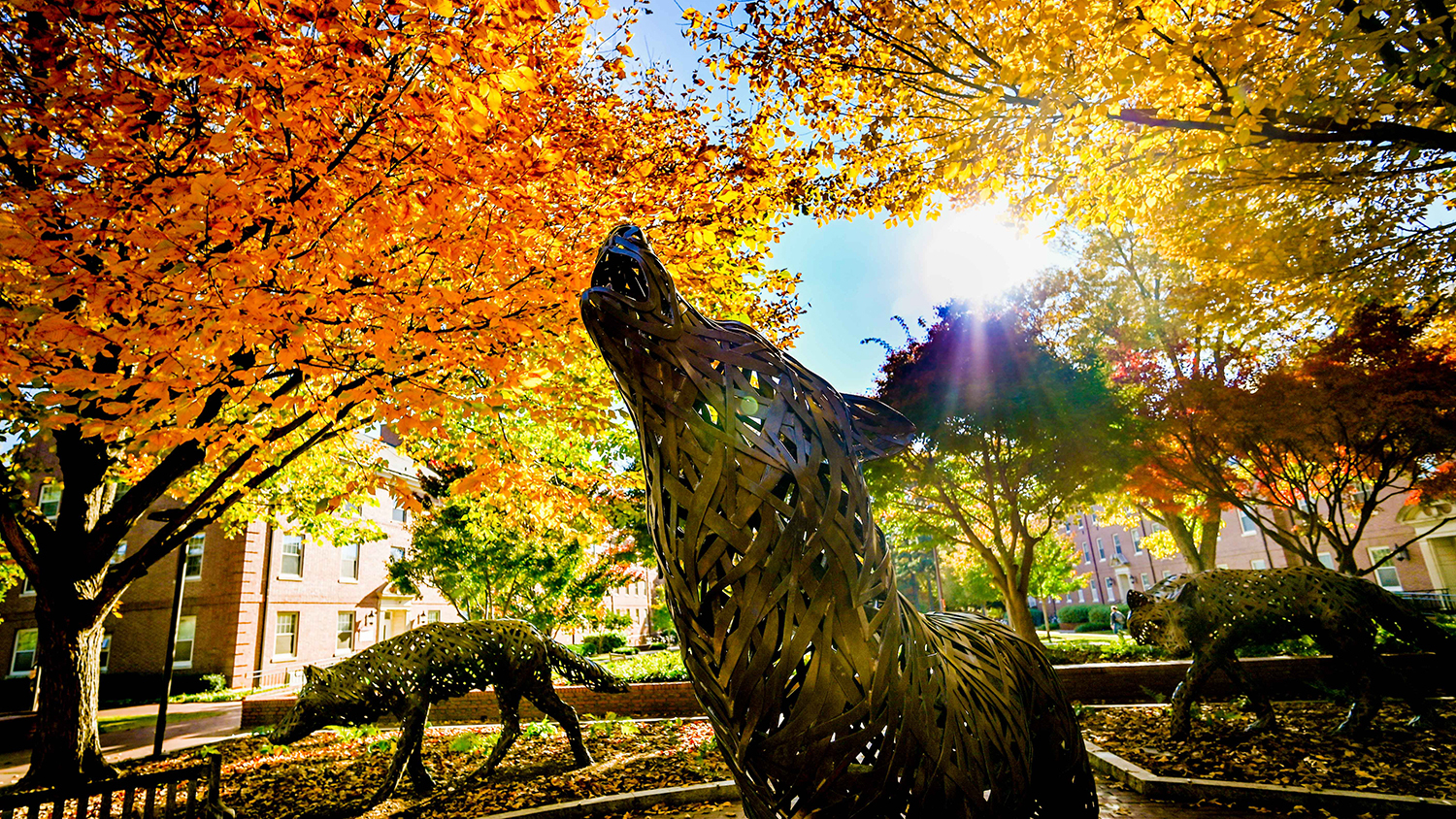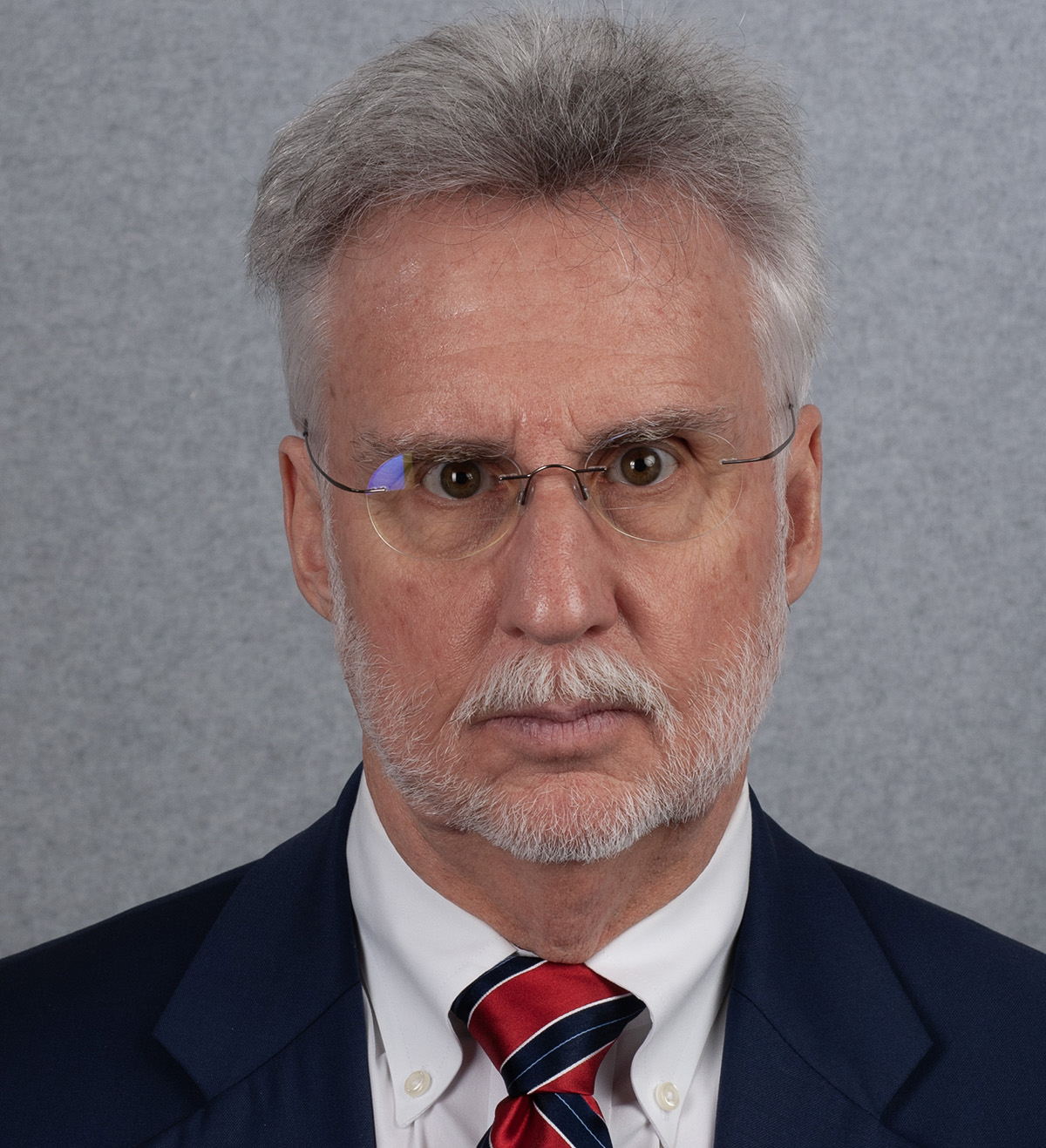Ph.D. Student Spotlight: Ha Vien

Ha Vien is a third-year Ph.D. student in Public Administration who entered the program in 2022. In January of this year, she was selected as an ASPA Founders Fellow 2025 and will be part of that 27-member prestigious cohort of exemplary future leaders in public service in the coming year.
We asked Ha about her experience at NC State and how it has helped her shape her career as a public administration researcher.
First, Congratulations on being selected as an ASPA Founders Fellow!
“Thank you! I’m honored to be selected,” she said. “This experience is an incredible opportunity to expand my network, refine my scholarship, and further my contributions to the field.”
Ha will be engaging in a year-long mentorship with a senior faculty member (she is still waiting to hear who this will be) who shares her research interests and will have the chance to present her research at ASPA 2025 in Washington, D.C., where she will share her work with leading scholars and practitioners in public administration.
In addition, Ha will contribute articles to PA Times magazine and gain experience in translating research for a broader audience. As part of the fellowship, she’ll participate in exclusive webinars and workshops designed to enhance research, teaching and career skills.
Tell us about your journey to graduate school and what led you to NC State.
My journey here has been quite a long one. I’m originally from Vietnam and after obtaining my undergraduate degrees in language and linguistics at Vietnam National University, Hanoi and business administration at the National Economics University in Hanoi, I worked for the Vietnamese government.
I started my career as an editor in the international political department in a government agency, and later, I was promoted to a managerial position. That role gave me the incredible opportunity to interview and interact with top government leaders in Vietnam, which really deepened my understanding of politics and public management. One of the biggest turning points for me came in 2017, when I decided to pursue a graduate degree in public affairs at Indiana University Bloomington. My focus was on policy analysis and international development. That time in my life was truly transformative — it gave me the chance to step back, reflect, and really figure out what I wanted to do. I realized that working in central government full-time wasn’t the right fit for me. I found myself drawn to academia because I could use my knowledge to make a lasting impact.
That’s when I decided to apply for a Ph.D. program, and I was fortunate to receive multiple offers. Ultimately, I chose NC State University. Looking at the bigger picture, I felt it was the right place for me. The department had a well-structured onboarding process with clear guidance on what to expect through booklets, emails, and even a welcome week that stood out from other schools. Before accepting, I spoke with my advisor, Dr. Christopher Galik, and he made a great impression on me—he was incredibly supportive then, and I can say he still is now. I officially received my offer in 2021, but due to COVID-19, I deferred for a year. Looking back, I have no regrets about my decision. It’s been an exciting journey, and I’m truly grateful for where I am today.
What has been your most meaningful lesson or event here at NC State?
Everything that has happened to me here in NC State has been a learning experience and I learn something new every day — I truly cherish this opportunity. One of the biggest lessons I’ve learned is how to do research. I’d say I’m a very patient, hardworking, and persistent person. But when I first started doing research, I had no idea how long it would actually take. My first research project started on my very first day at NC State, and I honestly lost track of how many days I spent just on the literature review. Back then, I didn’t really know how to structure or present a paper properly—I just followed my instincts and did my best. I spent a lot of time reading the peer-reviewed articles of big names in the field and learned how they wrote their research pieces. Fortunately, my advisor was incredibly patient, and we worked together for a full year. By the end of that first year, I had a complete paper, which I submitted and later published in a Q1 journal during my second year. That experience was a major turning point for me. It taught me that research isn’t something you can rush—it requires time, critical thinking, and, most importantly, patience. I also learned that being meticulous and detail-oriented is just as important as persistence. Those qualities shape a true and ethical researcher. Looking back, that first year was one of the most valuable learning experiences of my life, and the lessons I took from it still guide me today.
Tell us about your research.
I am a scholar of public policy and the policy process. I am interested in institutions and institutional theory, especially when they relate to energy, environmental challenges, environmental justice and sustainable development goals (SDGs). My research utilizes a policy process lens to explore public policies across their lifespan: from the time they are introduced to their subsequent passage. My research agenda seeks to leverage and advance policy process theory in terms of (a) how public policy is created, designed, and implemented — including the role of different stakeholders in the policy process, and (b) the impact of specific public policies on humans, the built environment, and/or the natural world. With regards to the former, I am currently doing research for a market paper that explores the local drivers behind individual congressional attention to energy/environmental policy. By framing energy as a sustainability issue and using constituency-level data, this analysis investigates how district-specific characteristics — namely, economic, environmental and social factors — influence a representative’s focus and their consequent behavior on energy and environment policy. With regards to the latter, I examined the normative aspects of public policies, i.e., values that public policy promotes such as efficiency, equity, prosperity, and justice. For example, in a recent presentation, I examined whether a solar photovoltaic (PV) technology mandate as a policy intervention in California can promote environmental justice among disadvantaged communities.
Why did you get interested in your research topic?
My interest in this research topic stems from both my professional background and a deep personal commitment to understanding how policies shape societal and environmental outcomes. Working in government early in my career gave me firsthand exposure to how policies are crafted, negotiated, and implemented, but I often found myself questioning why some policies gained traction while others stalled. As I delved deeper into policy analysis, I became particularly drawn to institutional theory and the policymaking process, especially in the context of energy and environmental challenges. Growing up in one of the world’s most climate-vulnerable countries, I have seen the real-life consequences of policy decisions—or the lack thereof—on communities, ecosystems, and economic opportunities. This personal connection, combined with my academic training, fueled my desire to explore how institutions, political dynamics and local contexts influence energy and environmental policy. I see my research as a way to bridge theory and practice, contributing to both scholarly discourse and real-world policy solutions that promote sustainability, equity, and resilience.
How has the Ph.D. program in Public Administration helped you with your professional development?
It has played a huge role in my professional growth. One of the biggest benefits has been the support to attend conferences, where I’ve had the opportunity to present my research, receive valuable feedback, and connect with scholars in my field. The faculty have been incredibly supportive, offering mentorship, research collaborations, and strong recommendation letters that have opened doors for me. Additionally, the program has provided access to advanced methodological training, academic seminars, job talks, and opportunities to develop essential skills in teaching, peer reviewing, and preparing for a career in academia. All of this has helped me grow as a researcher and prepared me for the next steps in my career as a future assistant professor.
What advice do you have for new or current graduate students?
My biggest advice for new and current graduate students is to stay hardworking, be ethical in your research and academic pursuits and remain persistent in your goals. Graduate school is a long journey, and success often comes from consistent effort and integrity in everything you do. But beyond hard work, one of the most valuable things you can do is expand your network beyond your university. Engage with scholars at conferences, connect with professionals in your field, collaborate with researchers from different institutions, and seek mentorship outside of your immediate academic circle. These connections can open doors to new opportunities, offer fresh perspectives on your research, and help you build a strong foundation for your future career.
What does the future have in store for you?
The future looks exciting as I continue to work toward completing my Ph.D. I’m focused on refining my research and looking forward to starting my career as an assistant professor, where I can continue to explore the intersection of public policy and sustainability while also mentoring students. In addition to teaching and research, I’m eager to collaborate on projects that address global challenges and expand my network within academia and beyond. Ultimately, I’m excited for the opportunities ahead to keep growing both professionally and personally.
- Categories:


